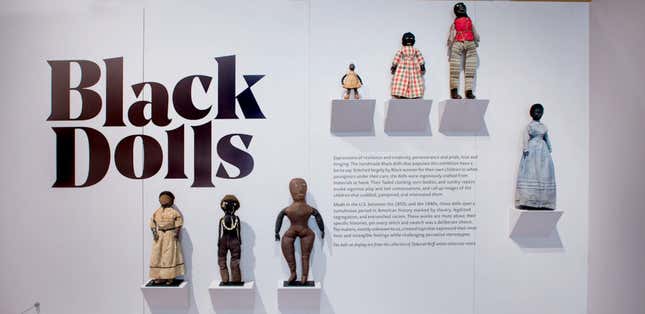
The Strong National Museum of Play in Rochester, New York has opened a Black Dolls exhibit that provides children with the history of the Black community in the 1800s and 1900s using dolls as the vessel.
The Black Dolls exhibit features a plethora of dolls that were handmade between the 1850s and 1940s. In one picture of the exhibit on the Strong’s website you can see the intro message about the room: “Stiched largely by Black women for their own children or white youngsters under their care…these dolls span a tumultuous period in American history marked by slavery, legalized segregation, and entrenched racism.”
The exhibit is placed in New York at a unique time given the country’s latest obsession with dolls due to the recent blockbuster film Barbie. Allowing children and students to use their love for dolls to educate them about the ups and downs of Black life is a brilliant way to start those conversations about race early in a child’s life.
While some dolls are beautiful, others are clear depictions of the dark history of the Black community. There is one particular doll with a red dress that the museum forewarns adults to be prepared to talk about racism with children after seeing it. On the museum’s website, they address this exhibit’s importance, “The Strong is a highly interactive, collections-based educational institution devoted to the study and exploration of play and its history. Black history is American history.”
The Strong has also provided a discussion guide for the museum-goers to dive deeper into the history behind the dolls. The guide includes questions that children may have about the dolls, race, gender, and discrimination and ways to answer the questions. The guide also prompts teachers and other adults to push conversations about representation and the importance of kids having dolls that look like them.
The Black Dolls exhibit will be available to view until January 2024. Most of the dolls provided are from a woman named Deborah Neff, a toy collector from Connecticut. In a 2015 New York Times feature, Neff explained that she has accumulated hundreds of handmade figurines from various locations such as flea markets, antique shows, and even dealers.

